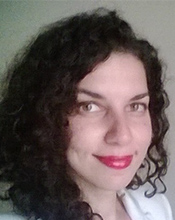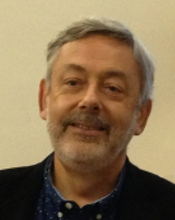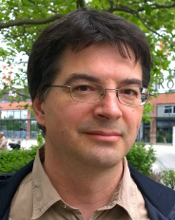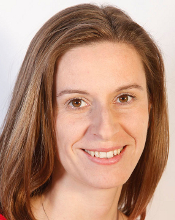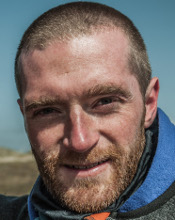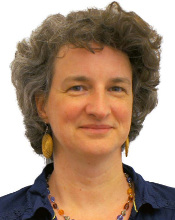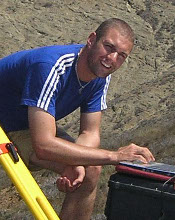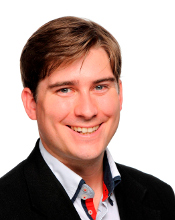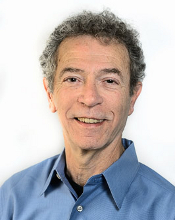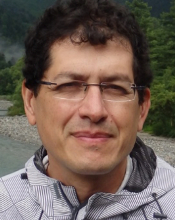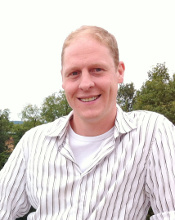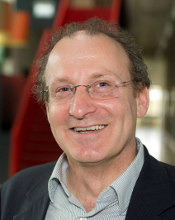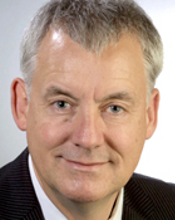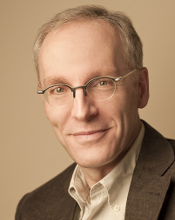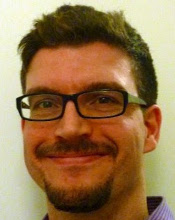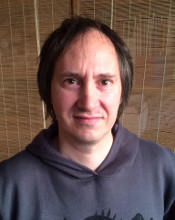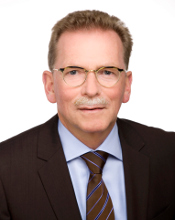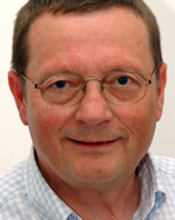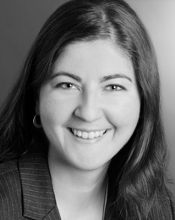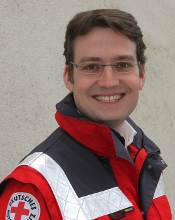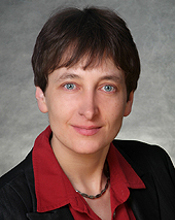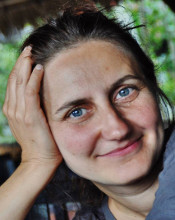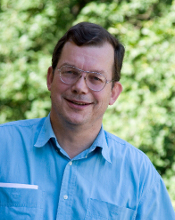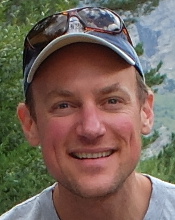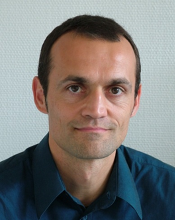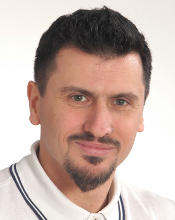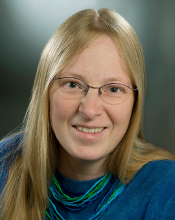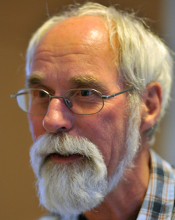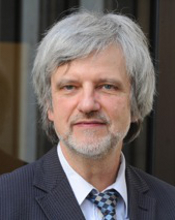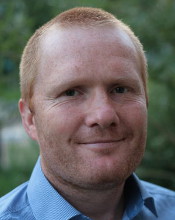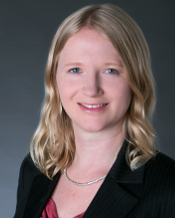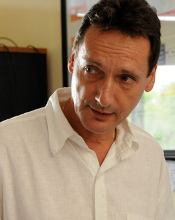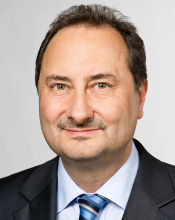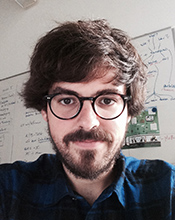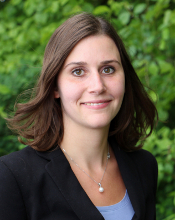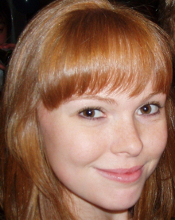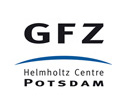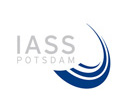Speakers
We present the list of speakers with a short bio in alphabetical order to give you an overview about their individual field of scientific expertise.
Please, note that this section will be updated regularly / Last update: 17.09.2015
Dr. Amina Aitsi-Selmi
is a medical doctor specialising in global public health and working across the social determinants of health. She is currently a consultant in International Public Health working with Professor Virginia Murray on global disaster risk reduction. She has worked in Cuba, South Sudan, Switzerland and the UK and at the local, national and international levels including with the UK Department of Health and the United Nations operating at the science-policy interface. She publishes regularly in academic journals and is an invited speaker at national and international events. Her professional qualifications include a medical degree from Cambridge University, an MSc in Public Health from LSHTM and a PhD in Epidemiology from UCL that was supervised by Professor Sir Michael Marmot.
Prof. Dr. David Alexander
is Professor of Risk and Disaster Reduction at University College London. His books include “Natural Disasters”, “Confronting Catastrophe”, “Principles of Emergency Planning and Management”, “Recovery from Disaster” (with Ian Davis) and “How to Write an Emergency Plan” (forthcoming). He is Editor-in-Chief of the International Journal of Disaster Risk Reduction. His research and teaching interests include natural hazards, earthquake disasters, culture and disasters, and emergency planning and management.
Dr. Andrey Babeyko
is a senior research scientist at the German Research Centre for Geosciences (GFZ), section “Geodynamic Modelling”. He obtained his diploma in physics (1987) from the Moscow State University and PhD in physics and mathematics (1992) from the Schmidt’s Institute of Physics of the Earth, Russian Academy of Sciences. His expertise and research interests lie in the broad range of numerical modeling including:
mineralogical composition and physical properties of rocks, lithospheric scale deformation, tsunami source and propagation. As a numerical modeller, Dr. Babeyko was strongly involved in the German-Indonesian Cooperation for Tsunami Early Warning (GITEWS / PROTECTS). Currently his research focus is on methodological development for tsunami hazard assessment and early warning.
Katharina Beyerl
is a psychologist with focus on environmental psychology. She joined the IASS in 2012 and is working in the team sustainable interaction with the atmosphere (SIWA). Her PhD thesis in Geography at Humboldt-University Berlin is about the perception of environmental changes and risks and the motivation for adaptation behaviour in Pacific small island states. Before, she did research about psychological perspectives on social and environmental challenges in megacities. She applies psychological expertise of risk perception, protection motivation, environmental behaviour and communication to regional specifics. Research with Pacific small island states means automatically taking multiple hazards into account, as these states face earthquakes, tsunamis and tropical cyclones to name just a few, and are in a constant state of recovery.
In her presentation, she will focus on psychological processes of risk perception and proactive behaviour including implications for communication.
Niklas Boers
studied Physics and Mathematics at LMU Munich and obtained his PhD in Physics from HU Berlin and is currently working at the Potsdam Institute for Climate Impact Research. During his PhD, he developed methods for the analysis and prediction of extreme rainfall events, which are based on complex network theory. He spent several months as a visiting scientist at the University of California at Santa Barbara, as well as at the University of Saõ Paulo and the Brazilian Centre for Earth System Science. His current research focusses on the spatiotemporal statistical characteristics of extreme rainfall and associated hydrological impacts, the representation of extreme rainfall events in climate models, as well as on the impacts of deforestation in the Amazon region on South American climate.
Dr. Christina Bollin
is a senior project manager at adelphi. She specialises on climate change adaptation (CCA) and disaster risk reduction (DRR). She is currently responsible for developing a vulnerability analysis for Mauritania and the consultancy for setting up an early warning system for climate risks in Burundi, both on behalf of the Deutsche Gesellschaft für Internationale Zusammenarbeit (GIZ).
She has many years of experience in the area of development cooperation focusing on climate and risk analyses, institution building and early warning. She has acquired work experience from around the world, above all in Latin America and Africa.
Christina Bollin has a doctorate in political science. She initially worked for GIZ in projects in Central America, and as the director of Disaster Risk Reduction sector programme. She was engaged in consulting (GIZ, Welthungerhilfe, UNDP, EU etc.) and, most recently, responsible for CCA and DRR at the consulting firm GITEC.
Prof. Dr. Bodo Bookhagen
has recently accepted the position as Full Professor and Chair of Geological Remote Sensing at the University of Potsdam. He studied Geology and Computer Science and received his PhD in 2005. Prof. Bookhagen has been a postdoctoral researcher at UC Santa Barbara and Stanford University, before accepting an Asst. Professor Position at UC Santa Barbara. There, he received tenure in 2010 and has been an Associated Professor in the Department of Geography and the Earth Science Department. His research is at the intersection of the realms of hydrology, geomorphology, and geology and focuses on combining field work and remote-sensing approaches.
Dr. Thomas Bruhn
is a physicist working as a researcher at the Institute for Advanced Sustainability Studies (IASS) in Potsdam. He engages in transdisciplinary exchange on the topic of climate engineering and is particularly interested in the relationship between humans and nature in the Anthropocene. He is doing research on the environmental impacts of CO2 capture technologies particularly in the context of utilizing CO2 as a resource.
Before joining the IASS he conducted research on semiconductor nanomaterials and molecular self-assembly in Berlin, Rome und Marseille. He regularly acts as a trainer in adult education programs and as facilitator of group processes. He is a member to the Think Tank 30 of the Club Of Rome and serves in the board of directors of the Global Contract Foundation.
Ana Maria Castillo
comes from Guayaquil, Ecuador, she is presently a Programme Officer for the United Nations Office for Disaster Risk Reduction for the Parliamentarian Initiative within the Advocacy and Outreach Section in Geneva, Switzerland. Previously she was part of the “Making Cities Resilient” campaign team, supported its development for 3 years 2012 – 2015. Ms. Castillo was Project manager for UNISDR Global Assessment Report back in 2009. Ms. Castillo worked for the United Nations’ Secretariat project “The Alliance of Civilizations” based in New York, an initiative supported by Spain and Turkey to improve cross-cultural relations. Ms. Castillo started her UN career in UNOPS back in 2004, the UN Office for Project Services, where she supported the management of different developing project in Africa and Asia mainly. Ms. Castillo worked for Ms. Pierina Correa, Acting First Lady of Ecuador, during the first year of the presidential term and during the Presidential campaign, 2006-2008, as Adviser for International Relations. Ms. Castillo did an internship as news journalist for Teleamazonas, an independent TV Channel from Ecuador. She also joined the Ecuadorian Foreign Affairs Ministry as intern at the Economic and Commerce department. Ms. Castillo has a B.A in International Relations and a Master in Conflict Resolution.
Prof. Dr. Ilan Chabay
is Senior Fellow at Institute for Advanced Sustainability Studies in Potsdam Germany, where he co-leads the Sustainable Modes of Arctic Resource-driven Transformations and global interdependencies (SMART) project and collaborates on governance of emerging technologies and on soil & land restoration. He chairs an international research alliance on Knowledge, Learning, and Societal Change (KLSCproject.org), which is aligned with the new Future Earth program. He is honorary member of Swiss Academy of Social Sciences and Humanities, served on the Scientific Committee of the International Human Dimensions Programme in Global Environmental Change and the Science & Technical Committee of the UN International Strategy for Disaster Reduction. He was Hasselblad Professor in sociology and applied information technology departments at University of Gothenburg and Chalmers University in Sweden 2006-2011, consulting professor of chemistry at Stanford University 1984-1988 and distinguished visiting professor at several universities internationally. In Silicon Valley he founded and directed an innovative company, “The New Curiosity Shop” from 1983-2001, which designed and produced hands-on science exhibitions for over 200 science centers worldwide.
His Ph.D. is in chemical physics from the University of Chicago.
Prof. Dr. Fabrice Cotton
holds the chair of Engineering Seismology and Seismic Hazard at the University of Potsdam. He is the head of the seismic hazard and stress field section of the German Research Centre for Geosciences (GFZ) and he is chairing the GEM (Global Earthquake Model) Science Board. Prof. Fabrice Cotton studied Earth Sciences in France at the “Ecole Normale Supérieure de Lyon” and at the University of Grenoble where he received a PhD in Geophysics in 1995. He joined IRSN (the French Institute for Radiological Protection and Nuclear Safety) in 1996 and worked with seismic hazard assessment for French nuclear facilities as researcher and Director of the seismic hazard team from 1999 to 2001. Prof. Cotton was nominated Faculty Scholar at the Grenoble University in 2001 and junior fellow of “Institut Universitaire de France” in 2006. He was an invited visiting professor at the Kyoto University in 2013. Read more…
Dr. Dim Coumou
is a senior scientist at the department of Earth System Analysis of the Postdam Institute for Climate Impact Research (PIK, Germany). He received a Ph.D. in Natural Sciences from ETH Zurich for his work on the development of efficient multiphase fluid flow transport schemes applied to hydrothermal system. In 2008 he joined PIK where he developed a radically new atmosphere model, Aeolus, which is part of the Potsdam Earth System Model (POEM). His research focusses on extreme weather events associated with atmospheric circulation and climate change. He obtained research grants from the German Research Foundation, the German Federal Ministry of Education and Research, Climate-KIC (EU) and the Volkswagen Foundation. Since early 2014 he is leading a junior research group which studies the link between Jetstream dynamics, extreme weather and their underlying tropical and/or Arctic drivers.
Prof. Dr. Torsten Dahm
studied geophysics at the Technical University Karlsruhe and obtained his doctor’s degree in geophysics in Karlsruhe in 1994. After holding an assistant lectureship in the group of Prof. Müller, University of Frankfurt, and after his habilitation in 2000, he became C3 Professor in marine seismology at the University of Hamburg. Since 2012 he is Professor in Geophysics at the University of Potsdam and head of the GFZ section 2.1 “Physics of Earthquakes and Volcanoes”.
Prof. Dahm has a broad background in seismology and volcano physics and is involved in different research programmes in these fields. His main areas of interest cover earthquake source processes, physics of fluid-filled fractures, and theoretical and experimental seismology. He authors/co-author numerous articles and has long-standing teaching experience.
Prof. Dr. Bernhard Diekmann
is head of the Research Unit Potsdam at the Alfred Wegener Institute Helmholtz Centre for Polar and Marine Research (AWI) and adjunct Professor for Quaternary Geology at Potsdam University, Institute of Earth and Environmental Science. He has a long-lasting expertise on geological and climate research in cold regions. Another important task is to foster outreach activities to public audience. Latest international projects in Siberia, Kamchatka, the Tibetan Plateau, and the Antarctic Ocean dealt with environmental changes since the last ice age, providing important knowledge for a better understanding of future global change.
Armin Haas
is co-leader of the Economics & Cultures program at the Institute for Advanced Sustainability Studies, Potsdam (IASS), and leads the research line Integrated Risk Governance of the Global Climate Forum (GCF). At IASS his main research focus concerns the economic, ecological and social sustainability of the financial system. At GCF, his research focuses on innovative approaches for the management of large-scale complex uncertainties. He holds a Ph.D. in economics from the University of Karlsruhe, Germany. Before joining IASS, he worked as senior scientist at the Potsdam Institute for Climate Impact Research (PIK) and headed the research group Bayesian Risk Management.
Martin Hammitzsch
MSc in Software Systems Engineering and BEng in Communication Systems, joined the GFZ German Research Centre for Geosciences in 2008. In two successive research projects (DEWS and TRIDEC) he has been responsible for the system design, management and transfer of research results to implement tsunami early warning systems in the Indian Ocean and North-eastern Atlantic, the Mediterranean and connected seas regions. Together with the TRIDEC project team he was honoured with the IRM Global Risk Award 2013 in the category ‘Managing Risks across Boundaries’. In 2014 he started with a young talented team to exploit new technologies for the implementation of a Cloud and Web based early warning and fast response system (TRIDEC Cloud) in the field of natural hazards, in particular tsunamis.
Sven Harig
is member of the group for tsunami modelling and numerical developments at Alfred Wegener Institute, Helmholtz Centre for Polar and Marine Research (AWI) in Bremerhaven, Germany. He studied mathematics with a focus on aspects of partial differential equations followed by a PhD thesis dealing with the application of the Finite Element Method in the ocean modelling context.
His main interests are concerned with topics in numerical ocean modelling in general and more specifically in the implementation of methods based on unstructured meshes. Since 2005 he has been involved in the TsunAWI model developments originating in the framework of the GITEWS project (German Indonesian Tsunami Early Warning System) dealing with the propagation and runup of tsunami waves . Besides providing support for users of highly parallel platforms Sven is involved in conducting training courses aiming at the generation of tsunami simulations and warning products for early warning purposes.
Dr. Maik Heistermann
heads the Flood Research Group at the Chair of Hydrology and Climatology (University of Potsdam). He graduated as a Geoecologist in 2002, and received his PhD from the University of Kassel in 2007 for investigating large scale impacts of environmental change on agricultural systems and water. In 2007, he joined the University of Potsdam. In his current research, he focuses on remote sensing of heavy rainfall. In particularly, he is interested in the application of weather radar observations for understanding and forecasting flash floods in both tropical and temperate environments.
He is also interested in the promotion of open data and open source software in this research field. He is one of the lead developers of wradlib, an open source software library that facilitates the quantitative estimation and forecasting of precipitation from weather radar observations. He also co-designed a virtual machine that combines different open software tools for weather radar research in a reproducible environment.
Dr. Bernd Hezel
decodes climate science results and designs suitable media formats at Climate Media Factory. He also co-heads the Impact Services & Climate Media group at Potsdam Institute for Climate Impact research. His research interests range from audio-visual climate change communication to climate change adaptation support. As a climate communication scientist he was recently appointed member of the scientific program committee of the European Climate Change Adaptation Conference 2015. Several of his movies won international festivals. Hezel received his doctorate degree from Heidelberg.
Prof. Dr. Dr. Peter Hoeppe
joined Munich Re in 2004. Currently he is heading the Munich Re division “Geo Risks Research/Corporate Climate Centre”. Before he has worked in different institutes at the Ludwig-Maximilians-University in Munich and as a post doc at Yale University. His academic education is in meteorology (Masters and PhD) and human biology (PhD). Currently his research focus is on trends of natural catastrophes and their drivers and on climate change effects on insurance industry in general.
Prof. Hoeppe is member of many scientific societies and advisory boards. He has held expert functions in different UN-Organisations. He is the Chairman of the Munich Climate Insurance Initiative, which he has founded in 2005. In 2007 Prof. Hoeppe has been appointed as Climate Change Advisor of the Bavarian State Government. In 2009 he has been one of the initiators of the Desertec Industrial Initiative. In 2014 he became Chairman of the “Münchener Universitätsgesellschaft.
Werner Jann
is a political scientist with special interests in the combination of public policy studies with organizational and institutional theory. He holds the chair for Political Science, Administration and Organization at Potsdam University, Germany. His main publications are in the field of Comparative Public Policy and Administration, Modernization of the Public Sector, Better Regulation and Public Governance. He has experiences both as a higher civil servant and as government consultant, and has served on a number of government commissions, amongst others for public sector reform and labour market administration, is Vice President of the International Institute of Administrative Sciences (IIAS) in Brussels, past President of the European Group of Public Administration (EGPA) and was for eight years member of the UN Committee of Experts on Public Administration (CEPA) in New York. He has been visiting professor at the School of Government, Victoria University, Wellington, New Zealand, and is adjunct professor at the Department of Administration and Organization Theory, University of Bergen, Norway.
Eleftheria Kampa
is a Senior Fellow at Ecologic Institute focusing on water and river basin management and policy, with specific emphasis on the Water Framework Directive (WFD) of the European Union (EU) and water policies in the Mediterranean region. Since joining Ecologic Institute in 2001, Eleftheria has worked on numerous research projects funded under the Framework Programmes FP5, FP6, and FP7 of the European Commission (EC) as well as on service contracts for national and European institutions. She provides support for WFD implementation (especially on hydromorphological pressures, measures, and heavily modified water bodies). Eleftheria coordinates knowledge dissemination and stakeholder participation in the FP7 project REFORM on river restoration and supports the German Federal Environment Agency (UBA) in a forum on fish protection and downstream fish migration. Her further interests include biodiversity protection and hydro-conflicts in water-scarce environments. Eleftheria is a Greek citizen. She works in English, German, and Greek and has knowledge of Spanish and Italian.
Dr. Thorsten Klose
is Head of the Programme Support and Resilience Unit Department for International Cooperation German Red Cross National Headquarter in Berlin.
He joined the German Red Cross (GRC) in 2009 and is the head of the Programme Support and Resilience Unit inside the International Cooperation Department of GRC. He is responsible for the conceptual development of the GRC in the field of shelter and settlement, disaster risk management, health, livelihood and climate change adaptation. Before that he was working as a GRC senior advisor for Disaster Risk Reduction. He studied geography, political science and social history at the Ruhr-University Bochum and University of Namibia. From 2005 to 2007 he was working in South Asia first as part of a European exchange project of InWEnt and then as project coordinator of a risk reduction project of the German NGO HELP from Germany after the Indian Ocean Tsunami in 2004. Between 2006 and 2009 he completed his PhD about the relevance of disaster preparedness and Linking Relief, Rehabilitation and Development (LRRD) inside humanitarian assistance and rehabilitation activities after natural disasters.
Dr. Heidi Kreibich
is senior scientist and head of working group “Flood risk and climate adaptation” at the Section Hydrology at the German Research Centre for Geosciences (GFZ). Additionally, she is deputy of the Topic Natural Hazards in the Helmholtz programme “Geosystem: The Changing Earth” as well as chair of the IAHS Panta Rhei working group “Change in flood risk”. Her research is focussed on flood risk assessment under changing conditions, particularly on vulnerability analysis, loss modeling, damage mitigation and risk management. In 2015 she finalised her habilitation “Flood damage analysis, modeling and mitigation” at the Geography department of the Humboldt-Universität zu Berlin. She studied Environmental Engineering at the Technical University of Berlin and received her PhD in Biology from the Philipps-University of Marburg in 2002.
Angela Landgraf
is research associate with teaching obligations at the University of Potsdam. She is interested in the topographic evolution of mountains at different scales: from the earthquake cycle and single ruptures via repeated faulting and interacting fault arrays to the current landscape and relief of mountain ranges and their forelands. Approaches used, include tools from paleoseismology, tectonic geomorphology, structural geology, numerical modeling (user), GIS and remote sensing, and Quaternary geochronology (especially terrestrial cosmogenic nuclides). Current research projects focus on active faults in the northern Tien Shan of Kyrgyzstan and Kazakhstan, in Mongolia, and the Alborz mountains in Iran.
Dr. Joern Lauterjung
Joern received his Master Degree in Physics in Bonn in 1981. His PhD thesis in Mineralogy and Solid State Physics was achieved with an experimental work at the Deutsches Elektronen Synchrotron on in-situ X-ray diffraction under high pressure – high temperature using synchrotron radiation (1986). From 1986 – 1991 he was responsible for the scientific coordination of the German Continental Deep Drilling Programme in Giessen and Bayreuth. Since 1992 he is at the German Research Centre for Geosciences in Potsdam. From 2005 – 2014 he coordinated the implementation of the German-Indonesian Tsunami Early Warning System in the Indian Ocean. Since 2011 he is the Co-Director of the Central Asian Institute for Applied Geoscience (CAIAG) in Bischkek, Kyrgyzstan.
Daniel Melnick
is a senior scientist of Potsdam University (Germany) and distinguished guest lecturer at University of Durham (UK). Daniel also holds a ‘Habilitation à diriger’ of the Université de Grenoble, in France. As a geologist, he primarily works on the coast of Chile and in the rift valley of East Africa. His research interest is on the quantification of uplift rates of land, erosion and other land-surface change related to repeated tectonic forcing, climate triggering and seismic events. During the last couple of years Daniel provided some fascinating new insights into relation of repeated seismic events in the subduction zone of Latin America and the continuous uplift of the Pacific coastline.
Prof. Dr. Bruno Merz
is Director of the Department “Geomorphology, Hydrology and Paleoclimatology” at the German Research Centre for Geosciences (GFZ) and Professor for Engineering Hydrology and Management of Georisks at the University of Potsdam. He is one of the internationally leading experts in flood risk assessment. His research includes risk analysis, and monitoring and simulation of hydrological and hydraulic processes. He is member of different national and international panels, such as the Scientific Advisory Board of the German Committee of Disaster Mitigation, or the Scientific Advisory Council of the Swiss Programme on Sustainable Water Management. He acts as editor of Natural Hazards and Earth System Sciences, Journal of Hydrology and Hydrologie und Wasserbewirtschaftung.
Dr. Stefano Parolai
obtained his diploma in geological sciences (1993) and a PhD in geophysics (1997) from the University of Genoa, Italy. Since 2000, he has worked at the GFZ German Research Centre for Geosciences in the fields of engineering seismology, seismic risk and early warning. In 2009 he was awarded a habilitation in engineering seismology from the TU Berlin. He is currently a senior scientist and the head of the Centre for Early Warning Systems at GFZ. Dr. Parolai is the coordinator of the Earthquake Model Central Asia initiative, which is concerned with seismic risk assessment in Central Asia, the SIBYL (SeIsmic monitoring and vulneraBilitY framework for civiL protection) project within EC-ECHO, and was a work package leader within the FP7 MATRIX (New Multi-Hazard and Multi-Risk Assessment Methods for Europe) project. In addition, Dr. Parolai is the General Secretary of the European Seismological Commission.
Dr. Massimiliano Pittore
is a senior research scientist at the GFZ. He is a physicist with a PhD in Informatics. His expertise and research interests range from image processing and data mining to earthquake engineering, (mostly seismic) risk assessment and design of early warning and rapid response systems. His research line focuses on devising consistent approaches to seismic risk assessment on a multi-scale spatial perspective and with multiple data/information sources. He is currently involved in several projects dealing with seismic risk (Global Earthquake Model – GEM), multi-risk (MATRIX, DESERVE), seismic vulnerability (Earth in PROGRESS) and remote sensing (SENSUM), and Early Warning (REAKT), in Europe and in Central Asia. He is also coordinator of the EU-funded FP7 project SENSUM. Read more…
Dr. Natalja Rakowsky
is a mathematician and since 2010 head of the group for tsunami modeling and numerical algorithms at the computing centre of the Alfred Wegener Institute, Helmholtz Centre for Polar and Marine Research (AWI) in Bremerhaven, Germany. The group was funded 2005 in the framework of the German-Indonesian Tsunami Early Warning System and provided e.g., the tsunami simulation code TsunAWI, a scenario database with a selection algorithm now operational at the warning center in Jakarta, and trainings for the staff.
Natalja’s research interest focuses on parallel numerical algorithms in ocean modeling in general and on an optimized, yet portable implementation on distributed multi-core computer architectures. In 2004-2009, she supported engineers of various fields (CFD at different scales, chemistry, electrical engineering) at the Technical University Hamburg-Harburg in the use of high performance computers and in the choice of algorithms. From 1995 to 2003, she worked as a PhD-student and post doc at AWI, focusing on parallel solvers in climate modeling.
Karsten Reise
is a coastal ecologist. His research has focused on intertidal zones and in particular on the Wadden Sea with the largest tidal flats of the world. He has published a book on Tidal Flat Ecology, and now finds that the globalization of human impacts has changed coasts to such an extent that little of his writing 30 years ago is still valid.
His interests span from microscopic organisms which dwell in marine sand to the history of coastal architectures.
He has been professor at various German universities on lives on the island of Sylt in the North Sea, where the Alfred Wegener Institute runs a laboratory for coastal research. Although retired, he is now writing a popular book on options for coastal adaptations to the rising level of the North Sea in the wake of global warming.
Prof. Dr. Ortwin Renn
serves as full professor for Environmental Sociology and Technology Assessment and as Dean of the Economic and Social Science Department at the University of Stuttgart (Germany). He also directs the Stuttgart Research Center for Interdisciplinary Risk and Innovation Studies (ZIRIUS) and the non-profit company DIALOGIK, a research institute for the investigation of communication and participation processes in environmental policy making. Renn also serves as Adjunct Professor for “Integrated Risk Analysis” at Stavanger University (Norway) and as Affiliate Professor for “Risk Governance” at Beijing Normal University.
Ortwin Renn has a doctoral degree in social psychology from the University of Cologne. His career included teaching and research positions at the Juelich Nuclear Research Center, Clark University (Worcester, USA), the Swiss Institute of Technology (Zuerich) and the Center of Technology Assessment (Stuttgart). Among others he is a member of the Scientific Advisory Board of EU President Barroso, the Scientific and Technical Council of the International Risk Governance Council (IRGC) in Lausanne, the National Academy of Disaster Reduction and Emergency Management of the People’s Republic of China and the Risk Communication Advisory Committee of the European Food Safety Authority in Parma (Italy).
Dr. Dirk Roessler
works as senior geophysicist at gempa GmbH, a spin-off of the German Reserach Centre for Geosciences (GFZ). He is specialised in seismic waveform analysis including seismic monitoring and earthquake source studies. At gempa GmbH he contributes to the advancement of a wide range of software around the real-time processing system SeisComP3 and the company’s training courses.
Before joining gempa GmbH, Dirk worked at serveral European institutions including GFZ Potsdam, DTU Space, Denmark and the University of Potsdam where he contributed to the GITEWS (German Indonesian Tsunami Early Warning) project.
He holds a doctoral degree in Geophysics from the University of Potsdam, Germany on Retrieval of earthquake source parameters in inhomogeneous anisotropic media and a diploma degree in Geophysics from the University of Leipzig, Germany.
Dr. Sybille Roehrkasten
joined the Institute for Advanced Sustainability Studies (IASS) in February 2015. She works as a research associate at the Plattform Energiewende / Transdisciplinary Panel on Energy Change, focusing on the international dimension of the energy transition and the water-energy nexus. Before that, Sybille engaged in foreign policy consultancy on energy and climate issues at the German Institute for International and Security Affairs (SWP) in Berlin. Sybille holds master degrees in International Economics and Political Science from the University of Tübingen, as well as a PhD from the Free University of Berlin. She also studied at the University of São Paulo (USP) and was visiting researcher at the Institute for Applied Economic Research (IPEA) in Brasília and the Brazilian Center for International Relations (CEBRI) in Rio de Janeiro. For her PhD, she compared the views of the German and Brazilian governments on the global governance of renewables. She is fluent in German, English, Spanish and Portuguese.
Harald Spahn
is a geologist and expert in environmental management working for more than 20 years as an international advisor for the German development cooperation in Latin America and Asia. His fields of expertise are environmental and natural resources management, disaster risk reduction, methodological advisory and project management. From 2006 to 2013, he was team leader in the project “Capacity Development in Local Communities”, a component of the German-Indonesian Cooperation for Tsunami Early Warning (GITEWS / PROTECTS). The project supported Indonesian partners to develop and implement tsunami risk assessments, warning chains and contingency plans. Since then he is working as a freelance consultant and trainer mainly in the fields of disaster risk management and climate change.
Prof. Dr. Guenter Strunz
is Head of the department “Geo Risks and Civil Security” at the Earth Observation Center of the German Aerospace Center (DLR). His main research fields are satellite based earth observation and its applications in environmental monitoring, risk assessment, early warning and emergency response for natural hazards. He graduated in Geodesy in 1984 and obtained his PhD degree in Photogrammetry and Remote Sensing, both from the Technical University Munich (TUM).
Jordi Tost
is a research associate at the Interaction Design Lab (IDL) of the University of Applied Sciences Potsdam. He received a bachelor in Telecommunication Engineering with focus on image and audio signal processing at the Polytechnic University of Catalonia in 2007 and a Master degree in Interface Design at the University of Applied Sciences Potsdam in 2015.
His research interests are in Human-Computer Interaction (HCI), Natural User Interfaces, Tangible Interaction and User Centered Design.
Since 2015 he is a team member of the DIGENTI project, which combines satellite data, geo-visualization, volunteered geographic information (VGI) and innovative interaction methods to support decision-making in disaster management on a multi-touch tabletop.
Leonie Wenz
is a mathematician working at the Potsdam Institute for Climate Impact Research (PIK). Her research focuses on the impacts of climate change on the complex network of global supply and value added chains. In her PhD thesis with Prof. Dr. Anders Levermann she analyzes potential higher-order and spillover effects of local climatic extremes and quantifies the associated costs. Leonie has co-developed the numerical model for economic damage propagation acclimate and is a scientific advisor of the community data project zeean. She is a fellow of the research group Climate & Development of Dr. Jan Steckel at the Mercator Research Institute on Global Commons and Climate Change (MCC) and holds a scholarship from the German Environmental Foundation (DBU).
Emma Woods
as a Senior Policy Adviser at the Royal Society, the UK’s national academy of science. She works with some of the world’s most distinguished scientists to provide expert advice on energy, environment and sustainable development to policymakers in the UK and overseas. Most recently she has focused on a project entitled ‘Resilience to extreme weather’. This project explores the risks posed to people by extreme weather events, and evaluates a range of options for building people’s resilience to them locally, nationally and internationally.
Emma holds two first class degrees from the University of Oxford, and has previously worked for WWF Madagascar, the Foundation for Democracy and Sustainable Development, and the United Nations Convention on Biological Diversity.
